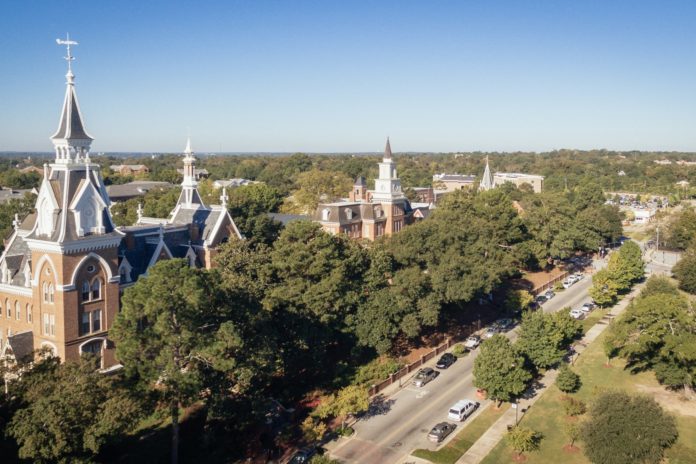ATLANTA – The Mercer Health Sciences Center Interprofessional Educational Committee hosted a faculty workshop on Feb. 2 to develop facilitation skills for interprofessional learning.
According to the World Health Organization, “Interprofessional education occurs when students from two or more professions learn about, from, and with each other to enable effective collaboration and improve health outcomes…”
Janet Shanedling, Ph.D., director of the National Center Interprofessional Curriculum Development, led a three-hour interactive workshop for more than 25 faculty members.
“This program was offered because of the Health Sciences Center’s commitment to developing graduates who are ready for collaborative practice,” said Gina Ryan, Pharm.D., clinical professor of pharmacy practice and chair of the Health Science Center’s Interprofessional Education Committee – Atlanta.
Faculty reported that they enjoyed the interactive nature of the workshop. The program included activities such as a discussion of resources available for interprofessional education and outcome measurement, a role-play exercise and guidance on facilitating various scenarios. Faculty will be able to use these types of information and experiences to develop and facilitate interprofessional activities.
The Interprofessional Educational Committee will offer future workshops in simulation, case development, instructional design, and evaluation and assessment. The ultimate goal is to increase the number and variety of interprofessional educationl activities offered to students.
Additional information about the interprofessional educational initiatives may be found at
http://hsc.mercer.edu/ipe/.
About the Mercer University Health Sciences Center
The Mercer Health Sciences Center became operational on July 1, 2012, and includes four academic colleges – medicine, pharmacy, nursing, and health professions. The Center enrolls more than 1,700 students, employs more than 400 full-time faculty and staff, and graduates more than 500 physicians, nurses and nurse educators, physician assistants, pharmacists, physical therapists, family therapists, public health professionals, biomedical scientists and clinical medical psychologists each year. The Center’s commitment is to integrate professional education among its future health science professionals by eliminating the traditional silos that have divided them. The Center believes this team-based and patient-centered approach to training health care professionals best serves the needs of patients and ultimately saves money, time and lives. For more information about the Center, please visit
hsc.mercer.edu.










